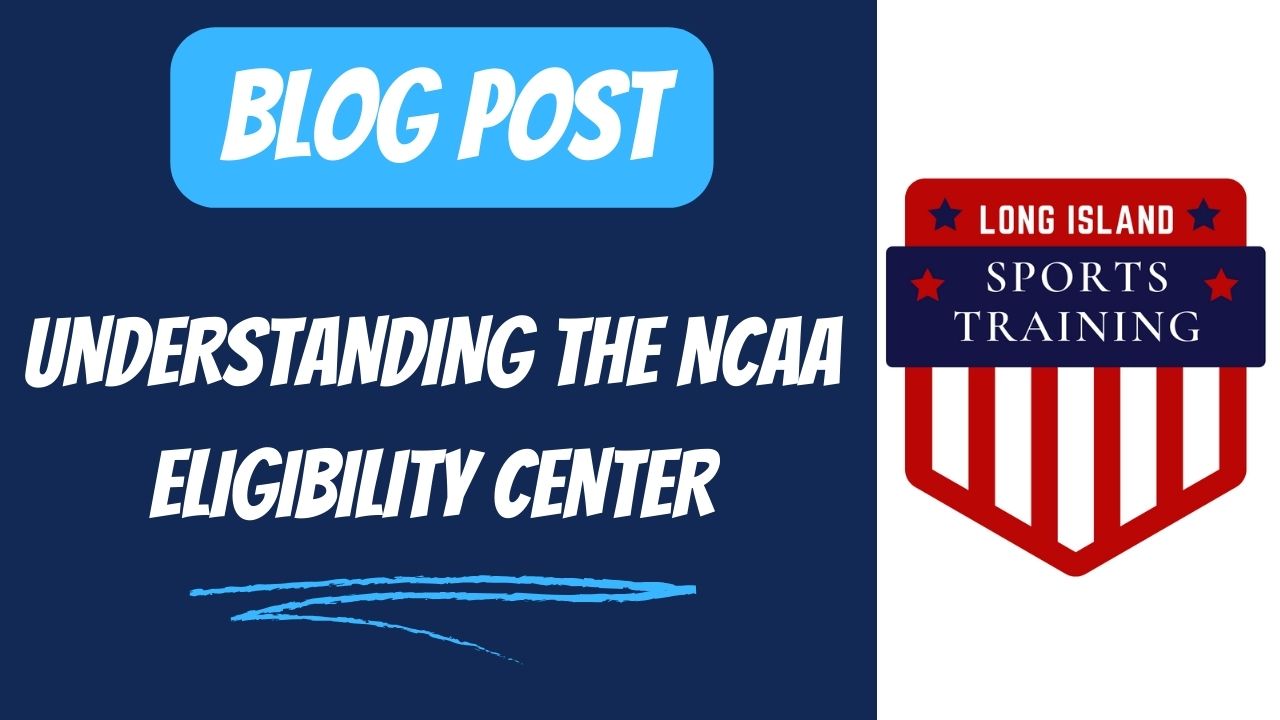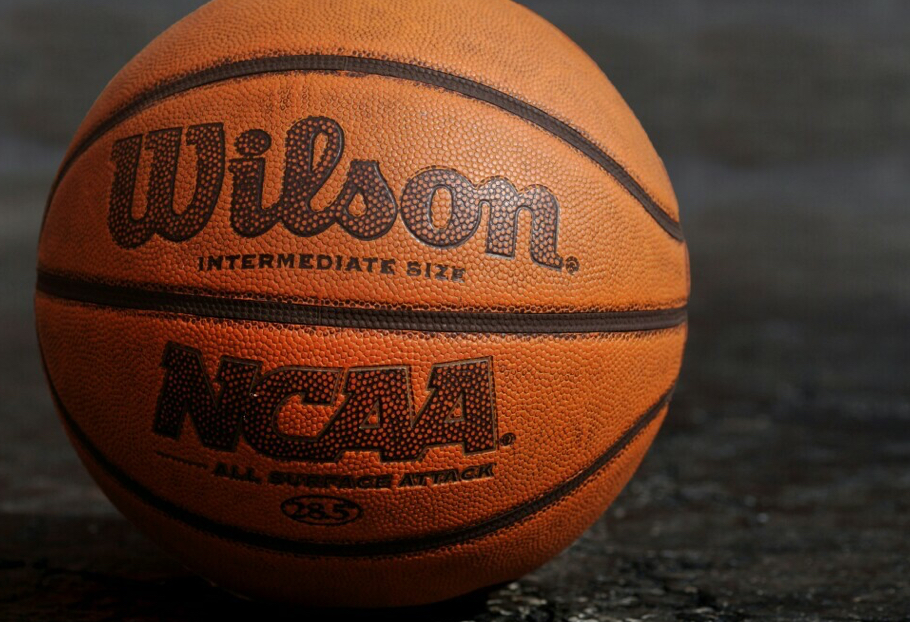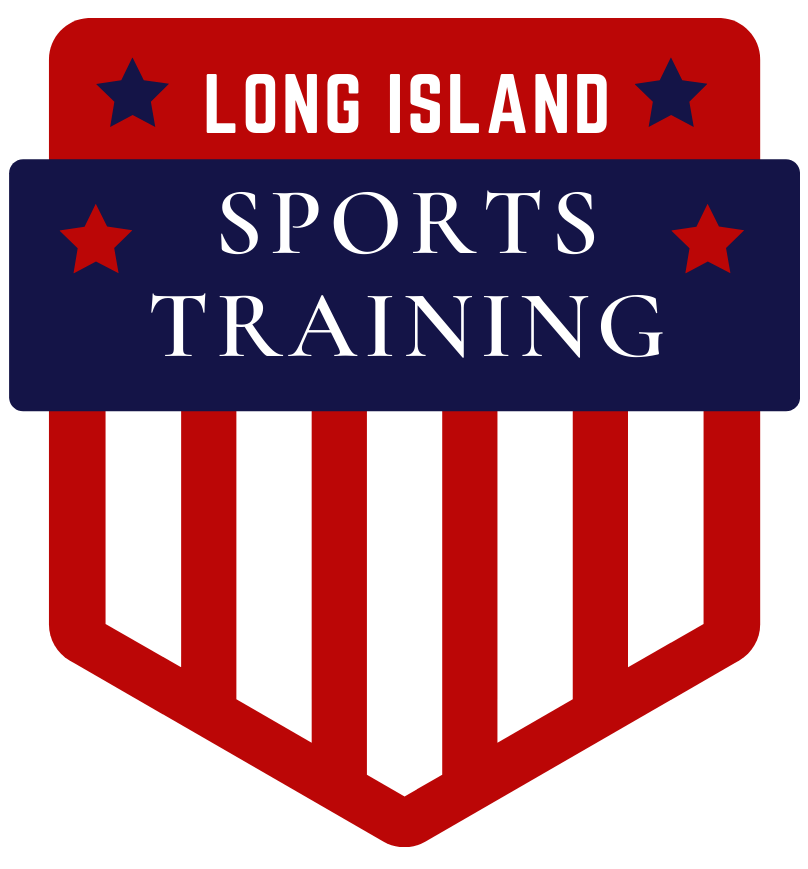Understanding The NCAA Eligibility Center
 Understanding The NCAA Eligibility Center
Understanding The NCAA Eligibility Center
Understanding the NCAA Eligibility Center is vital for any high school athlete dreaming of playing college sports, as it serves as the gateway to maintaining eligibility and securing opportunities in collegiate athletics.
Furthermore, The NCAA Eligibility Center plays an important role in the lives of aspiring college athletes. Established by the National Collegiate Athletic Association (NCAA), this organization is responsible for ensuring that student-athletes meet all necessary academic and amateurism standards before they compete at the collegiate level.
Ultimately, The NCAA Eligibility Center’s primary function is to review and certify the academic and amateur credentials of all prospective student-athletes. This process ensures that athletes are prepared for the rigorous academic environment of college and uphold the integrity of amateur sports. By adhering to these standards, the NCAA protects the fairness and competitive balance of college athletics.
Today, we will delve into every aspect of the NCAA Eligibility Center, from the registration process to maintaining academic and amateur eligibility. Whether you’re a student-athlete, parent, or coach, we hope to provide valuable insights and tips to help you successfully navigate the eligibility process.
Registration Process For The NCAA Eligibility Center
Registering with the NCAA Eligibility Center is a critical first step for any high school athlete aspiring to compete at the collegiate level. This process ensures that the NCAA can evaluate your academic and amateur credentials, which are essential for maintaining your eligibility. Here’s a detailed, step-by-step guide to help you navigate the registration process smoothly.
Step-by-Step Guide to Registering with the NCAA Eligibility Center
1. Create Your Account
- Visit the NCAA Eligibility Center Website: Go to the official website at eligibilitycenter.org and click on “Register.”
- Choose Your Division: Decide whether you will be registering for Division I or Division II, as each has slightly different requirements.
- Provide Basic Information: Fill out your personal information, including your name, date of birth, and email address. Ensure that all details are accurate to avoid any delays in your certification.
2. Complete the Registration Form
- High School Information: Enter details about your high school(s) and graduation date.
- Sports Participation: List all the sports you’ve participated in during high school, including club sports. This helps the NCAA understand your athletic background.
- Parent/Guardian Information: Provide contact information for your parent or guardian. This is crucial for younger student-athletes.
3. Pay the Registration Fee
- Fee Details: The registration fee is $90 for U.S. students and $150 for international students. Fee waivers are available for eligible students based on financial need.
- Payment Methods: You can pay the fee online using a credit card or through other available payment methods.
4. Submit Your Transcripts
- High School Transcripts: Request your high school to send your transcripts directly to the NCAA Eligibility Center. This can often be done electronically.
- Official Transcripts: Ensure that the transcripts are official and include all your completed courses and grades.
5. Send Your Test Scores
- Standardized Tests: Submit your SAT or ACT scores directly to the NCAA Eligibility Center using code 9999. The NCAA only accepts scores sent directly from the testing agency.
- Test Score Criteria: Familiarize yourself with the minimum score requirements for Division I and Division II to ensure you meet the standards.
6. Monitor Your Account
- Check Your Status: Regularly log in to your NCAA Eligibility Center account to check the status of your registration and review any updates or requests for additional information.
- Respond Promptly: If the NCAA requests additional documents or clarifications, respond promptly to avoid any delays in your eligibility certification.
Tips For A Smooth NCAA Eligibility Center Registration Process
Start Early: Begin the registration process by your junior year of high school to ensure you have ample time to meet all requirements and address any issues that may arise.
Stay Organized: Keep a checklist of required documents and deadlines to ensure nothing is missed. Use folders or digital tools to store important information.
Seek Guidance: Consult with your high school counselor or coach for assistance and advice throughout the registration process. They can provide valuable insights and help you stay on track.
Academic Eligibility Requirements
Navigating the academic requirements of the NCAA Eligibility Center is for high school athletes aiming to compete in college sports. Meeting these standards ensures that student-athletes are not only prepared academically but also eligible to participate in NCAA competitions.
Here’s a comprehensive overview of the academic eligibility requirements you need to understand.
Core Course Requirements
1. Understanding Core Courses
- Definition: Core courses are fundamental academic classes that student-athletes must complete in high school to be eligible for NCAA competition.
- Examples: These courses typically include subjects such as English, math, science, social studies, and foreign languages.
2. Minimum GPA Requirement
- GPA Calculation: The NCAA calculates a student-athlete’s GPA based on their performance in core courses.
- Division Differences: Division I and Division II have different minimum GPA requirements. Division I generally requires a minimum GPA of 2.3 in core courses, while Division II requires a minimum GPA of 2.2.
3. SAT/ACT Score Requirements
- Standardized Testing: Student-athletes must achieve a minimum score on the SAT or ACT to meet NCAA eligibility standards.
- Score Calculation: The NCAA uses a sliding scale to correlate GPA and test scores, allowing flexibility for athletes with higher GPAs to score lower on standardized tests, and vice versa.
Importance of Academic Preparation
Achieving academic eligibility with the NCAA Eligibility Center requires proactive planning and dedication throughout high school. Student-athletes should prioritize their studies, maintain good grades in core courses, and prepare diligently for standardized tests. By meeting or exceeding these academic benchmarks, athletes not only enhance their eligibility but also demonstrate their readiness for the academic challenges of college.
Tips for Academic Success
1. Plan Early: Start planning for NCAA eligibility in your freshman year of high school. Know the core course requirements and the importance of maintaining a strong GPA.
2. Work with Your Counselor: Regularly consult with your high school counselor to ensure you are on track with NCAA requirements and academic goals.
3. Study Strategically: Dedicate time to study effectively for standardized tests. Consider taking practice exams and utilizing resources like tutoring or study groups to improve your scores.
Understanding and meeting the academic eligibility requirements of the NCAA Eligibility Center is essential for aspiring college athletes. By focusing on core courses, maintaining a competitive GPA, and preparing diligently for standardized tests, student-athletes can pave the way for their athletic and academic success at the collegiate level.
NCAA Eligibility Center Amateurism Requirements
Understanding amateurism is vital for any high school athlete pursuing collegiate sports through the NCAA Eligibility Center. Amateurism rules are designed to ensure fairness and integrity in college athletics, emphasizing that student-athletes participate in sports for the love of the game rather than financial gain. Here’s a detailed exploration of amateurism requirements and how they impact eligibility.
Definition and Importance of Amateurism
1. Definition of Amateurism
- Purpose: Amateurism rules distinguish between professional athletes and student-athletes by prohibiting the receipt of financial benefits related to athletic participation.
- Examples: Activities such as accepting prize money, signing professional contracts, or receiving endorsements can jeopardize amateur status.
2. NCAA Amateurism Certification
- Certification Process: Student-athletes must complete the NCAA Amateurism Certification questionnaire as part of their eligibility process.
- Evaluation: The NCAA evaluates factors such as past participation in sports, compensation received, and involvement with agents or professional teams.
Maintaining Amateur Status
1. High School and Club Sports
- Participation Guidelines: Student-athletes can participate in high school and club sports while maintaining their amateur status, provided they follow NCAA guidelines.
- Rules and Restrictions: Be mindful of rules regarding compensation, travel expenses, and benefits associated with participation.
2. Impact of Amateurism Violations
- Consequences: Violating amateurism rules can result in loss of eligibility, forfeiture of competitions, and potential sanctions against the athlete or school.
- Disclosure and Transparency: Disclose any potential amateurism issues early in the process to address concerns and seek eligibility reinstatement if needed.
Tips for NCAA Eligibility Center Amateurism Compliance
1. Educate Yourself: Familiarize yourself with NCAA amateurism rules early in your high school career to avoid unintentional violations.
2. Communicate Effectively: Maintain open communication with coaches, administrators, and family members regarding any potential amateurism-related activities or offers.
Navigating NCAA amateurism requirements is essential for high school athletes aspiring to compete in college sports. By understanding the definition, certification process, and implications of amateurism violations, student-athletes can protect their eligibility and uphold the integrity of collegiate athletics. Stay informed, stay compliant and pursue your athletic goals with confidence.
Important Deadlines And Timelines
Adhering to deadlines and timelines set by the NCAA Eligibility Center is imperative for high school athletes aspiring to compete in collegiate sports. Meeting these milestones ensures that student-athletes maintain eligibility and smoothly transition into their collegiate athletic careers. Here’s a comprehensive guide to the key dates and timelines you need to know.
Registration and Documentation Deadlines
1. Registration Deadlines
- Early Planning: Begin the registration process with the NCAA Eligibility Center as early as possible during your high school career.
- Division I vs. Division II: Note that Division I and Division II may have different registration deadlines, so be aware of specific timelines for each division.
2. Document Submission
- Transcripts: Ensure that your high school sends official transcripts directly to the NCAA Eligibility Center in a timely manner.
- Test Scores: Submit your SAT or ACT scores to the NCAA using the designated code (9999) before the specified deadlines.
Academic and Certification Timelines
1. Academic Certification
- Core Course Completion: Complete all required core courses by the end of your high school career to meet NCAA eligibility standards.
- GPA Calculation: Regularly monitor your GPA to ensure it meets or exceeds the minimum requirements set by the NCAA for your desired division.
2. Amateurism Certification
- Certification Process: Complete the NCAA Amateurism Certification questionnaire well in advance of your anticipated college enrollment date.
- Evaluation Period: Allow sufficient time for the NCAA to evaluate your amateurism status based on your past participation and activities.
Consequences of Missing Deadlines
1. Eligibility Delays
- Impact on Recruitment: Missing deadlines can delay your eligibility certification, potentially affecting recruitment opportunities with college coaches.
- Late Fees: Some processes may incur late fees if deadlines are missed, so it’s crucial to stay organized and proactive.
Tips for Timely Compliance
1. Use a Calendar: Maintain a calendar or digital planner with all NCAA Eligibility Center deadlines and milestones to stay on track.
2. Communication: Regularly communicate with your high school counselor, coaches, and family members to ensure everyone is aware of important deadlines and timelines.
Understanding and adhering to important deadlines and timelines set by the NCAA Eligibility Center is essential for high school athletes pursuing collegiate sports. By staying organized, proactive, and informed, student-athletes can navigate the certification process smoothly and maintain eligibility for their athletic aspirations. Plan ahead, meet deadlines, and take proactive steps to ensure a successful transition into collegiate athletics.

Frequently Asked Questions (FAQs) About The NCAA Eligibility Center
Navigating the NCAA Eligibility Center can raise many questions for high school athletes and their families. Here are answers to some of the most common questions to help you better understand the process and requirements.
1. What is the NCAA Eligibility Center?
The NCAA Eligibility Center is responsible for evaluating the academic and amateur credentials of student-athletes who wish to compete in NCAA Division I or Division II sports. It ensures that athletes meet specific academic standards and maintain amateur status.
2. How do I register with the NCAA Eligibility Center?
To register, visit the NCAA Eligibility Center website and create an account. You will need to provide personal information, academic history, and sports participation details. Be prepared to pay the registration fee and submit required documents such as transcripts and test scores.
3. What are core courses, and how do they affect my eligibility?
Core courses are fundamental academic classes required by the NCAA, such as English, math, science, and social studies. Student-athletes must complete a specified number of core courses with a minimum GPA to meet eligibility requirements.
4. What is the NCAA Amateurism Certification?
The NCAA Amateurism Certification ensures that student-athletes maintain amateur status by not accepting financial benefits or endorsements related to their athletic abilities. It involves completing a questionnaire to disclose any previous sports participation or compensation received.
5. When should I start the NCAA Eligibility process?
It’s recommended to start the NCAA Eligibility process early in your high school career, ideally by your sophomore or junior year. This allows sufficient time to fulfill requirements, address any issues that may arise, and communicate with college coaches.
6. What happens if I miss a deadline or make a mistake during the eligibility process?
Missing deadlines or making errors can delay your eligibility certification. It’s important to stay organized, monitor deadlines closely, and promptly respond to requests for additional information or corrections. Some mistakes may require eligibility reinstatement procedures.
7. How can I check my eligibility status with the NCAA Eligibility Center?
You can monitor your eligibility status by logging into your NCAA Eligibility Center account regularly. The account provides updates on your registration status, document submissions, and any additional requirements needed for certification.
8. Where can I find additional resources or support for NCAA eligibility?
For additional information and support, visit the NCAA Eligibility Center website, where you can access guides, FAQs, and contact information for customer support. Additionally, your high school counselor and coaches can provide valuable guidance throughout the eligibility process.
Conclusion
Understanding the NCAA Eligibility Center is paramount for high school athletes with aspirations of competing in collegiate sports. This comprehensive guide has provided insights into the registration process, academic eligibility requirements, amateurism rules, important deadlines, and frequently asked questions surrounding NCAA eligibility.
By understanding and adhering to NCAA Eligibility Center requirements, you are setting yourself up for success both athletically and academically. Stay dedicated, stay informed, and pursue your dreams with determination.
Let’s Talk: Contact Tim @ Long Island Sports Training
If you are looking for local sports or fitness training sessions to help you reach peak performance contact us:
Web Page:
https://longislandsportstraining.com/services/
Phone:
Email:
Tim@LongIslandSportsTraining.Com
